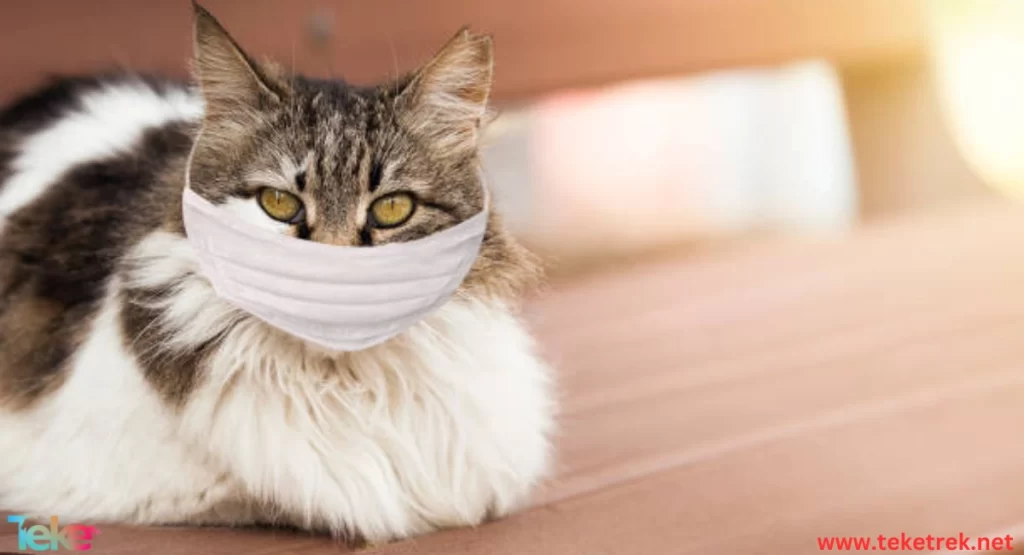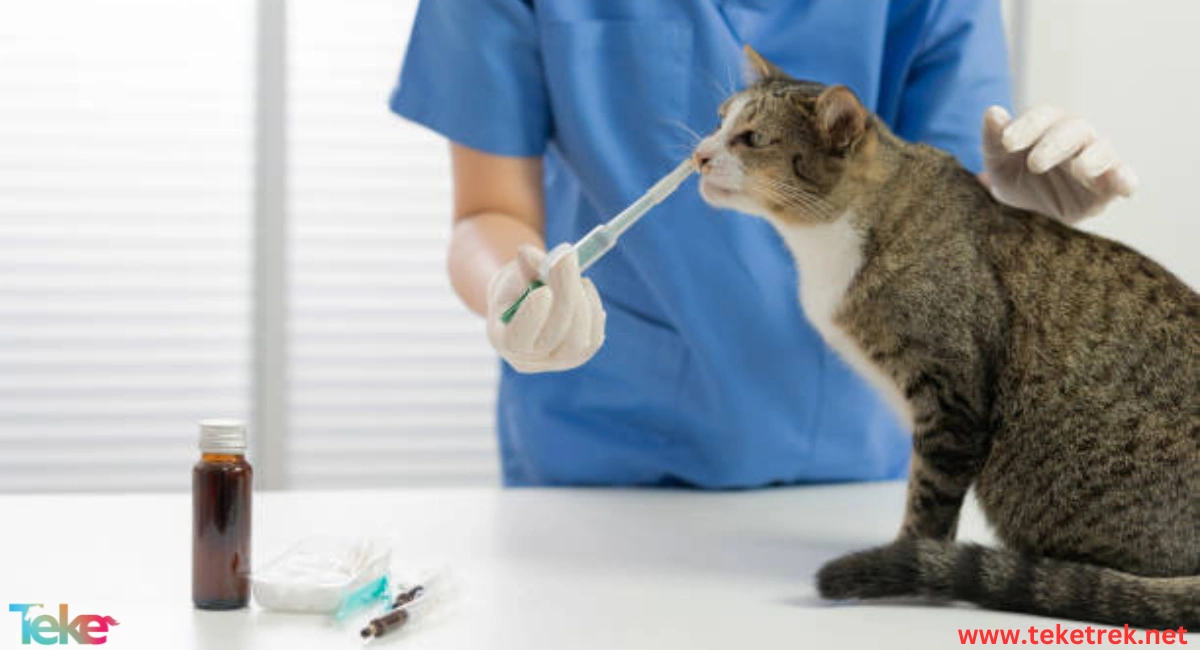Respiratory diseases in cats are among the most prominent health problems they may be exposed to, and they occupy a large part of the minds of people who love this cute creature. In some serious cases, these diseases may lead to the death of cats.
The causes of respiratory diseases in cats are varied, including environmental factors, bacteria, and viruses, which requires special care and immediate attention when exposed to any health problem.
Are you a cat lover? Would you like to know what respiratory diseases you are exposed to and how to treat them? We will answer these questions and many others in this articlefrom teketrek. Stay with us and benefit from the following lines.
Respiratory diseases in cats: everything you need to know

As we mentioned, respiratory diseases that cats suffer from are among the most prominent health challenges they may be exposed to at various stages of their lives. It should be noted that inflammation of the upper respiratory system is a common disease that does not cause death, while diseases of the lower respiratory system in cats may lead to Death, so we will mention to you below the most common of these diseases:
Rhinitis and throat infection, or as it is known as cat flu, is a highly contagious virus with two causes: the calicivirus and the herpes virus.
Rhinitis, or as it is known as inflammation of the nasal cavity, is caused by the presence of fungi such as: allergic parasites, hidden microbes, in addition to foreign bodies that enter the nose, and sneezing and runny nose are among the most prominent causes.
Pneumonia, which may result from an exacerbation of the problem of sinusitis, is one of the most prominent respiratory diseases in cats. It may occur as a result of inhaling mucous secretions resulting from the contents of the mouth or stomach. Various symptoms appear, such as: sneezing, coughing, fever, rapid breathing, or difficulty swallowing.
Asthma, which is an inflammation of the bronchial tubes, which leads to their narrowing and the production of more mucus, thus making breathing difficult, is one of the diseases that must be diagnosed and treated early, as treatment involves the use of steroids and inhalers to prevent symptoms that may appear.
Read also: Kidney disease in cats: causes, symptoms and treatment
Causes of respiratory infection in cats
There are many reasons that lead to cats contracting respiratory diseases, as we will mention the most prominent of these reasons as follows:
Viruses, such as herpes virus, are transmitted from one cat to another through contact or respiratory droplets, which leads to viral infections that cause respiratory infections.
Fungi found in pools of stagnant water and contaminated areas may cause fungal infections that end in inflammation of the airways and thus many respiratory diseases.
Parasites such as flies, worms, and larvae may lead to respiratory infections, but this is rare.
Bronchitis, which can be classified into acute or chronic according to the duration during which symptoms appear.
Respiratory failure in cats, which leads to a decrease in the levels of oxygen they receive.
Read also: Skin Infections and Skin Diseases in Cats: Causes, Symptoms, and Treatments
Ways to treat colds in cats
If the cat you are raising is exposed to a cold, you can take some measures to help it recover, by following the following:
Provide a quiet and peaceful place. Allocate a safe space for your cat within the house, while avoiding leaving it until it fully recovers.
Providing the cat with a hot water bottle that is carefully packed inside blankets to avoid exposing the cat to burns, in other words, to maintain a warm atmosphere in the house.
Providing a humid environment rich in steam, which helps relieve congestion and treat respiratory obstruction.
Stimulate the cat’s appetite with delicious and unusual foods, in addition to supplying fluids.
Clean the cat thoroughly by using a towel moistened with hot water and squeezing it, then wiping it gently over the various areas to be cleaned.
Read also: Heart disease in cats: Understanding common heart diseases in cats
How to prevent respiratory diseases in cats

If you want to protect your cat and spare it from being exposed to many diseases, including respiratory ones, you can follow the following tips:
Giving her all the necessary vaccinations on time, with the need to visit the veterinarian periodically to ensure her health and that she is free of diseases.
Keep the place where the cat lives clean to avoid exposure to viruses and bacteria.
Giving her balanced food rich in important nutrients to support the immune system.
Reducing her stress levels because this will have a negative impact on her overall health.
Ventilate the place where the cat lives well to protect it from exposure to viruses and germs.
Monitor any changes in your cat’s health or behavior, such as sneezing, coughing, and loss of appetite, to consult a doctor at the right time before the disease worsens.
Avoid mixing with other sick cats.
In conclusion, we can say that respiratory diseases in cats are among the most prominent health issues that occupy a large part of the minds of their breeders and all pet lovers. Diagnosing and treating them in a timely manner contributes to improving the quality of life of this gentle creature.





